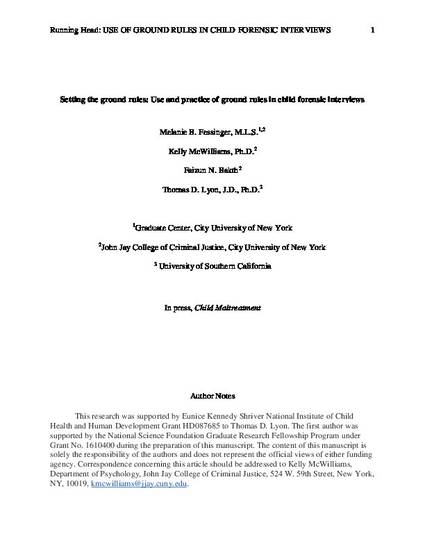
Article
74. Setting the ground rules: Use and practice of ground rules in child forensic interviews
Child Maltreatment (In Press)
(2020)
Abstract
Most child forensic interviewing protocols recommend that interviewers administer a series of ground rules to emphasize concepts that are important to accurately answering interview questions. Limited research has examined whether interviewers follow ground rules recommendations in real-world forensic interviews. In this study, we examined how often highly trained interviewers presented and practiced each of the recommended ground rules. We also examined whether children accurately responded to practice questions. We coded transcripts from 241 forensic interviews of 4- to 12-year-old children conducted by interviewers in the United States who were largely trained using the Ten Step Investigative Interview (Lyon, 2014). Results demonstrated that interviewers routinely presented and practiced the ground rules, but this significantly varied by children’s age. Additionally, children often accurately responded to practice questions, but younger children were less accurate than older children. Taken together, results highlight that interviewers may deviate from ground rules recommendations based on the characteristics of the child which has implications for both future research and practice.
Keywords
- ground rules,
- child testimony,
- child sexual abuse,
- child forensic interviews,
- child abuse
Disciplines
Publication Date
Winter February 14, 2020
Citation Information
Fessinger, M.L.S., McWilliams, K., Bakth, F.N., & Lyon, T.D. (in press). Setting the ground rules: Use and practice of ground rules in child forensic interviews. Child Maltreatment.
